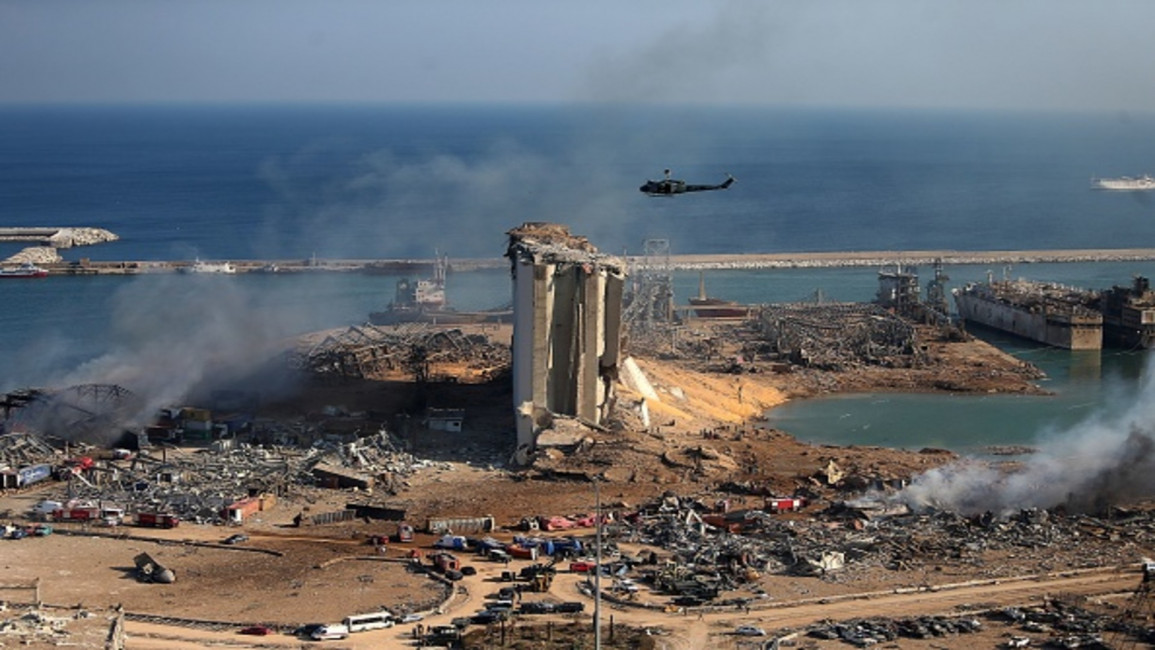UN hits out at Lebanon's leaders ahead of Beirut blast anniversary
The UN Special Coordinator for Lebanon hit out at the country's leaders on Thursday for failing to effectively investigate the Beirut port blast and hold any senior officials to account, ahead of the first anniversary of the explosion that killed more than 200 people and ravaged the city.
At a closed-door UN Security Council meeting, Joanna Wronecka condemned the lack of a transparent investigation since the August 4 blast.
"The families of the victims and thousands whose lives have been changed forever by that terrible blast are still waiting. They deserve justice and dignity," Wronecka said.
Special Coordinator @JWronecka briefed the UN Security Council today on the implementation of #Resolution1701
— UNSCOL (@UNSCOL) July 22, 2021
For more details 👇https://t.co/7zcR94xYWL
The explosion, caused by the detonation of a shipment of ammonium nitrate that had been unsafely stored at the port for years, killed at least 207 people, wounded thousands and destroyed large areas of the capital.
With the first annual commemoration of the explosion less than two weeks away, Wronecka highlighted the country’s multiple and accumulating socio-economic, financial and political difficulties and reiterated the UN’s calls for the formation of a new government that can put the country on the path to recovery.
"The United Nations is doing what it can to mitigate the situation, but ultimately the responsibility for salvaging Lebanon lies in the hands of Lebanon's leaders."
Lebanon is to observe the first anniversary of the deadly blast that struck Beirut port on August 4 as a national day of mourning.
Families of the blast victims have staged regular protests in the capital to express their anger at senior officials, whom they view as responsible for mishandling the hazardous shipment.
Many have viewed the decision by Mohamed Fahmy, Lebanon's caretaker interior minister, to deny a judicial request to question a senior official as a the latest sign of the lack of accountability of Lebanon's political class.
Investigative judge Tarek Bitar requested that Parliament lift the immunity of those politicians who are under investigation, including caretaker Prime Minister Hassan Diab and former minister Yousef Fenianos, as well as top security and military officials. In response, a group of 28 politicians signed a petition to demand protection from scrutiny.
Photographs of the signatories were shared widely on social media, with images of the blast in the background and the hashtag "parliamentarians of shame" and "nitrate MPs."
The Criminals / Deputies who signed a petition to protect the suspects of the world most powerful artificial non-nuclear explosions in history.
— 🇱🇧 (@Halfynassif_) July 21, 2021
They killed our people. #نواب_النيترات #ارفعوا_الحصانات_الآن #ارفعوا_الحصانات#انفجار_مرفأ_بيروت pic.twitter.com/BaCDBMmeDY
Speaking at the annual review on the implementation of UN Security Council Resolution 1701, which was intended to resolve the 2006 Lebanon War, Wronecka stressed the importance of holding free and fair elections next year within the constitutional timeframe.
She also praised the Lebanese Armed Forces for its role in safeguarding the country's security and stability and its close cooperation with the United Nations Interim Force in Lebanon (UNIFIL), the UN’s peacekeeping mission located along Lebanon’s southern border with Israel.
Tensions at the border flared earlier this week as two rockets were fired from Lebanon into Israeli territory, according to the Israeli army.
The UN peacekeeping force in the border region, UNIFIL, said it had boosted security in the area and "launched an investigation" in collaboration with the Lebanese military.



